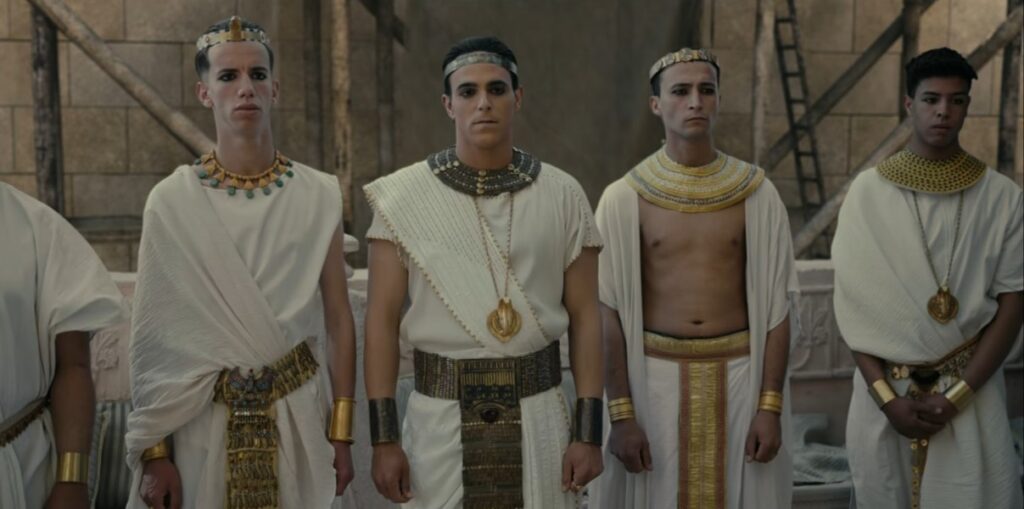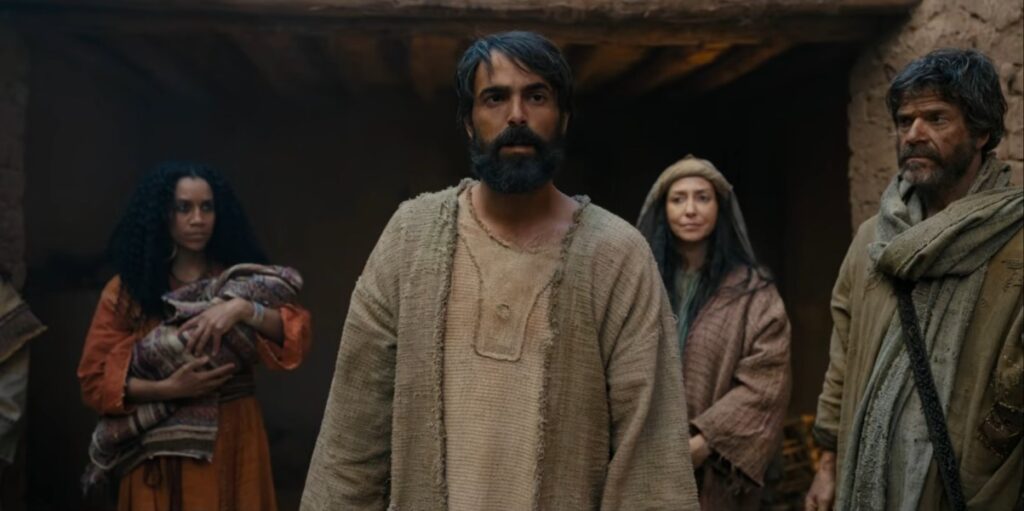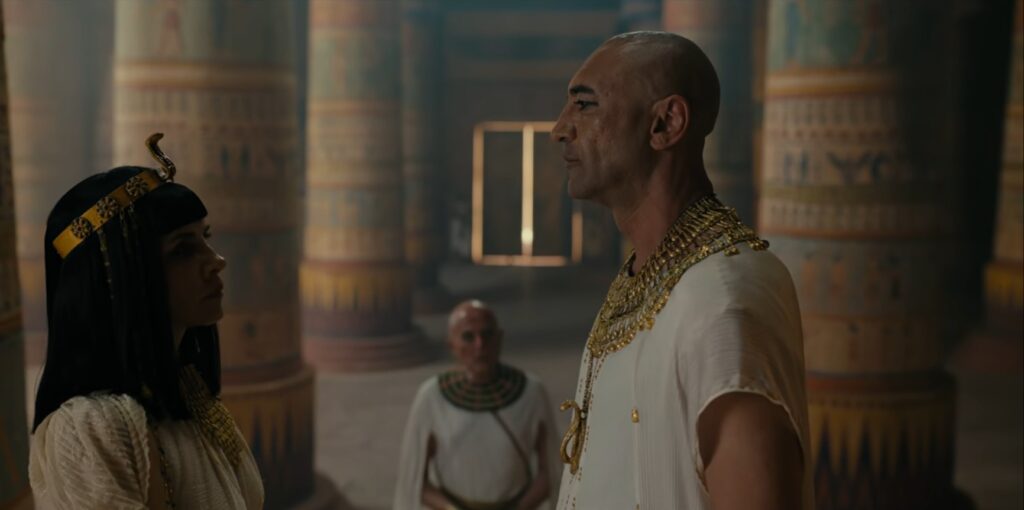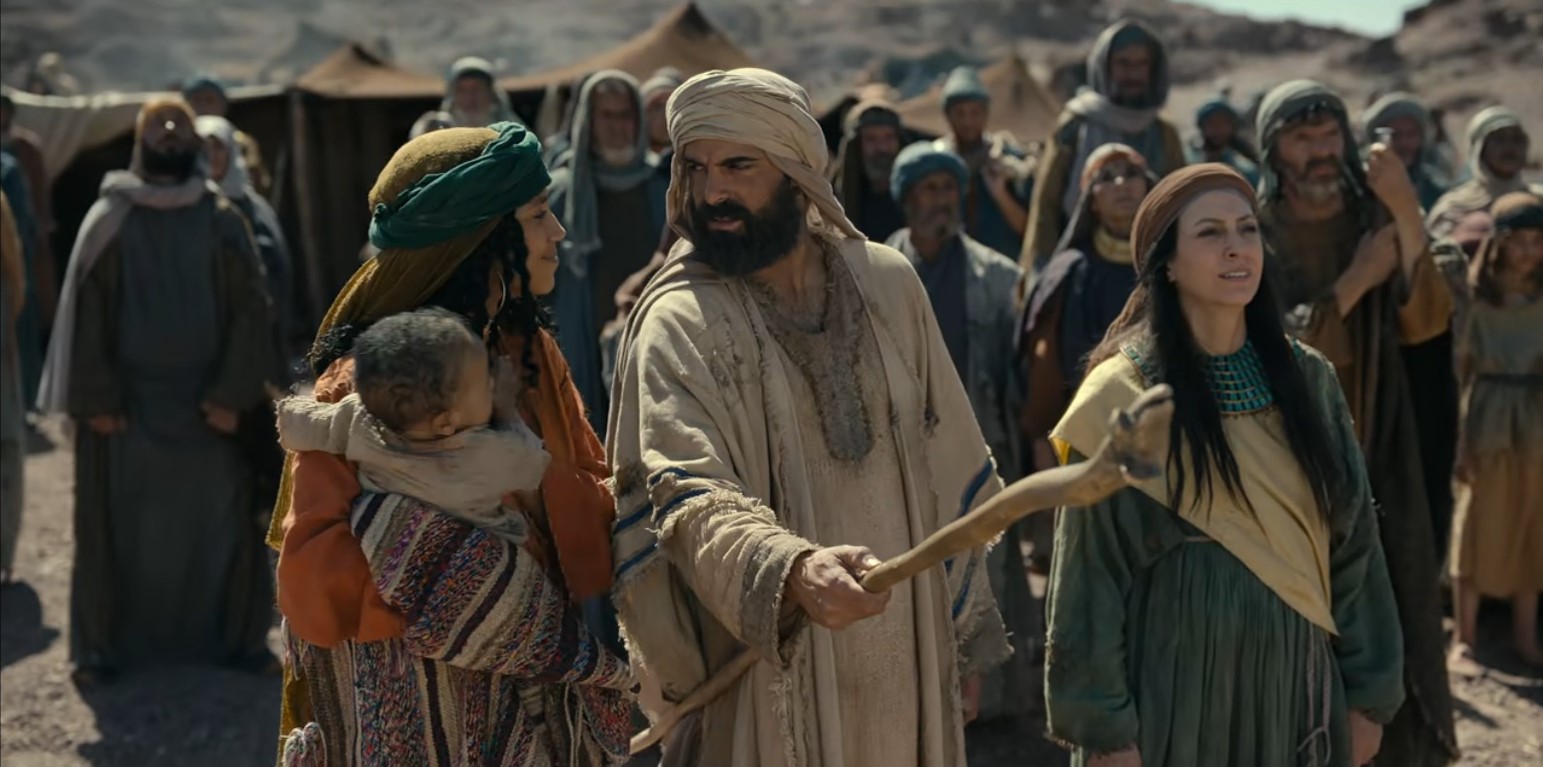Testament The Story of Moses is a three-part historical documentary series released on Netflix. It is directed by Benjamin Ross and the screenplay is co-written by Lindsay Shapero. With a runtime of about 60+ minutes each, Charles Dance serves as the narrator of the series.
The series delves into the life of Moses and his journey from being an outcast and a murderer to becoming a prophet and saviour of the Hebrews. The Testament seamlessly weaves together gripping docudrama and expert interviews, exploring Moses’ quest for redemption as he travels from the banks of the Nile to Mount Sinai and the Red Sea. The series showcases some of the most inspiring and iconic events described in the Bible, Qur’an, and Torah.
The cast of the documentary series includes Avi Azulay, Dominique Tipper, Mehmet Kurtuluş, Ishai Golan, Reymonde Amsellem, Tülay Günal, Melis Ulaş, Oberon K. A. Adjepong, Emre Alp Törün, Cem Emüler and Clarke Peters. It also features Rabbi Rachel Adelman, Nick Brown, Rabbi Shlomo Einhorn, Dr Peter Enns, Dr Monica Hanna, Rabbi Maurice Harris, Dr Celene Ibrahim, Tom Kang, Jonathan Kirsch, Bishop Andy Lewter, Dr Carol Meyers and Dr Shady Nasser.

Testament The Story of Moses Review
Despite having a runtime of more than 4 hours collectively, the series doesn’t spend much time showing how Moses was found by the princess, or how his childhood was. Rather it quickly brushes through the main events and introduces us to the adult Moses having an identity crisis. He feels like he doesn’t belong or behaves like typical Egyptian royals, ie treating the Hebrews with torture and no mercy. Once when his anguish feelings take over him, making him murder a taskmaster beating up a Hebrew peasant, he fled to the desert in guilt and redemption.
Finding himself in the Midian mountains, where he receives enlightenment or in other words, an encounter with the gods. What happens next doesn’t really need to be revealed here, as almost everyone would have heard their version of the plot, according to the faith they believe in. And this is exactly what the creators try to play on, injecting experts from different faiths in between the dramatic sequences, to highlight that regardless of any religion, Moses was a living person with extraordinary abilities, whose miracles are recorded in all scriptures.
Also, a safety measure to save themselves from hurting the ‘religious sentiments’ of any group by only following the story from one point of view. Another major change in the Testament The Story of Moses Netflix series, compared to numerous previous ones is the humanness of Moses. Rather than showing him as the super patient, all-forgiving, saint-like calm demeanour, Moses is a doubtful, impatient man with anger issues.
He doesn’t act like a ‘know-it-all’ after having one encounter with God, but always questions what has been asked of him. Maybe the modern-day gurus could take some lessons from instead of proclaiming themselves god after one meditation session. It shows how the people around him believed and encouraged him more than he did in himself.

While a screen adaptation of any historical event or literacy piece can rarely ever do justice, one has to be mindful that such Netflix documentaries lean more towards drama than accuracy. There would be many things that people would find changed, for example, it’s mostly believed that Zipporah never went down to Egypt. She starts out making the journey but heads back to Midian. They only reunite when Moses comes back with the Hebrews who crossed the Red Sea. But in the docuseries, Zipporah is Moses’ support system at every step, helping him understand other’s perspectives and assuring him.
Even if we consider it more of a dramatic recreation, there are many things that one would feel are lacking. First of all, the wigs used by the Egyptians look quite out poorly designed. It looks like weaves of threads put on somebody’s head and sometimes too funny. If anything, they could have spent more time and money on getting proper wigs that wouldn’t look out of place. Or could have borrowed some props from Alexander: The Making of a God series to create better sets and costume design.
Talking about props, the biggest blunder in Testament The Story of Moses series is holding one of the Ten Commandments tablets upside down. When Moses comes down from the mountain, take a closer look at the tablets and compare them with the original ones and you will see that he is carrying it wrong. And the same scene is used as the poster, key art to promote the show. Well, I wonder if anybody has yet pointed it out to the creators and the editing team, or they are aware and just rolling with it, hoping nobody would take notice.
Another lacking point was the population of Hebrews that followed Moses to the desert. The number seems so small, maybe a hundred, while it’s known to be a much bigger number. Seeing such a small group of followers somewhat minimises the influence of Moses on the larger public and takes away the epicness of it all. This was one crucial thing that would have contributed to show that despite all his issues (personality or physical), Moses was an influential man, believed by many.

If we talk about acting, then the actor playing Pharoah was much more impressive in his portrayal than the leading man. While the creator’s intent of humanising Moses is understandable, I personally would have never followed such a weak-willed and mostly infuriated man claiming to be the messenger of god. Maybe that’s why the Hebrews on the show were always so ready to find something more assuring than a doubtful man. In an overview, it’s an interesting docudrama, if you enjoy historical recreations. But don’t expect it to be factually accurate.
Rating: 3/5
Testament The Story of Moses is available to watch on Netflix.
Also Read: 3 Body Problem Review: Astounding Concept that Makes You Retrospect
